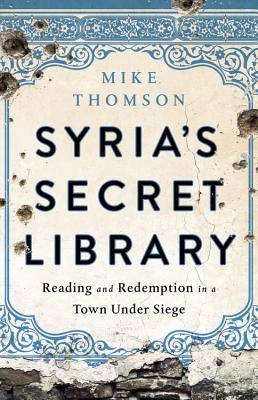What do you think?
Rate this book


320 pages, Hardcover
First published November 1, 2018
Principles are planted in a library, and they grow into ideas. . . [A library] is a factory for thoughts and solutions. So in order for us to be educated and more aware, we had to have a library. Libraries are the fuel of life.
An excellent read that speaks to our common humanity. It was only by chance that I was reading this as the October 7 War was just underway, the struggles for freedom and security in Israel and Gaza, in Syria (still) and throughout the Middle East (really, in almost the entire world….) echoed as I read about the “secret library.” Most impressive to me as professional librarian was the commitment that the creators of this library made to be universal in their collection building while meanwhile here in the ‘land of liberty’ conservative voices want to, and have, limited access to books and information that they disagree with; believing that their values speak for everyone. The so-called “Moms for Liberty” could learn from those in Syria who, in the midst of strife, simply wanted knowledge.